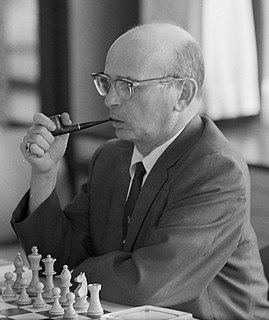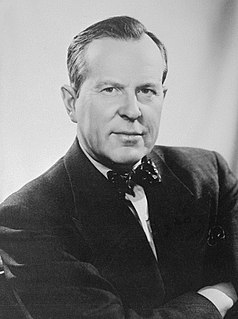A Quote by Alexander Alekhine
As a rule, so-called "positional" sacrifices are considered more difficult, and therefore more praise-worthy, than those which are based exclusively on an exact calculation of tactical possibilities.
Related Quotes
When you could discern a real threat from everything else, it was called caution. When you couldn't, it was called paranoia. ... You cannot separate paranoia from knowledge. The more you know, the more possibilities you see. The more possibilities you see, the more possibilities someone else sees. The more "someones" there are, the more "they" there are. It's a matter of simple math before you realize that They might not like you.
He is the so-called father of the modern school of chess; before him, the King was considered a weak piece and players set out to attack the King directly. Steinitz claimed that the King was well able to take care of itself, and ought not to be attacked until one had some other positional advantage. He understood more about the use of squares than Morphy and contributed a great deal more to chess theory.
Just praise is only a debt, but flattery is a present. The acknowledgment of those virtues on which conscience congratulates us is a tribute that we can at any tine exact with confidence; but the celebration of those which we only feign, or desire without any vigorous endeavours to attain them, is received as a confession of sovereignty over regions never conquered, as a favourable decision of disputable claims, and is more welcome as more gratuitous.
The end of the eighteenth and the commencement of the nineteenth century are remarkable for the small amount of scientific movement going on in this country, especially in its more exact departments. Mathematics were at the last gasp, and astronomy nearly so; I mean in those members of its frame which depend upon precise measurement and systematic calculation. The chilling torpor of routine had begun to spread itself over all those branches of Science which wanted the excitement of experimental research.
There's no reason - not yet, anyway - to believe [Bob] Dylan himself endorses such an attitude; or that he would think of himself as a more profound and worthy recipient than, for instance, any of the brilliant Motown or girl-group lyricists who are more likely to be awarded a Nobel prize for chemistry than for literature. Whether there is more truth and humanity in his best lyrics than in Abba's, or less, is unquantifiable, and it would be meretricious to attempt such a calculation in contesting an argument he has been dragged into.
Those so-called records in the Bible were written by devout ecclesiasts who wanted to believe, and wanted others to believe, in the coming of a Messiah. Until someone proves otherwise, therefore, these stories must be considered nothing more than folk tales consisting in equal parts of legend and wish fulfillment.
The art of drawing conclusions from experiments and observations consists in evaluating probabilities and in estimating whether they are sufficiently great or numerous enough to constitute proofs. This kind of calculation is more complicated and more difficult than it is commonly thought to be. . . .
...in spite of the deep-seated craving for love, almost everything else is considered to be more important than love: success, prestige, money, power-almost all our energy is used for the learning of how to achieve these aims, and almost none to learn the art of loving. Could it be that only those things are considered worthy of being learned with which one can earn money or prestige, and that love, which "only" profits the soul, but is profitless in the modern sense, is a luxury we have no right to spend energy on?

































